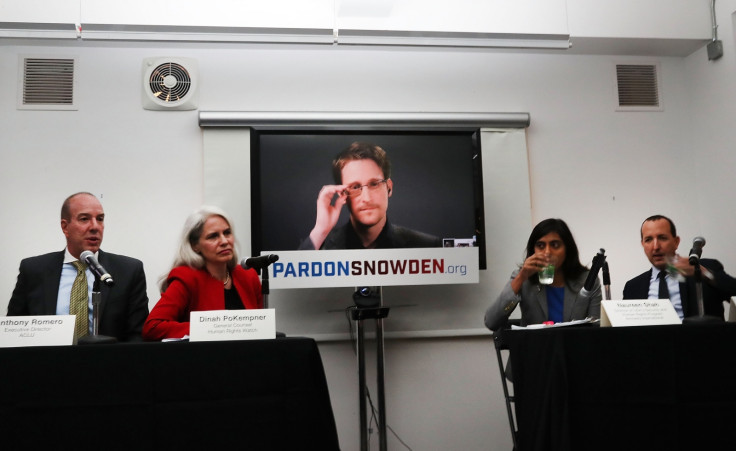Edward Snowden says he is 'not counting' on pardon from President Obama
In November, President Obama said he 'can't pardon somebody who hasn't gone before a court.'
NSA whistleblower Edward Snowden says he is not expecting a pardon from President Barack Obama before he leaves office in January. Snowden previously asked Obama to pardon him based on moral grounds, arguing that although his actions were technically illegal, they were the right thing to do and beneficial to the public.
In 2013, the former NSA contractor leaked thousands of classified documents revealing the scale of the US and UK governments' mass surveillance programmes. He is currently residing in Moscow to avoid standing trial in the US where he faces charges brought under that 1917 Espionage Act that could put him in prison for up to 30 years, if convicted.
In September, Snowden was hopeful that he would eventually return to the US saying, "In the fullness of time, I think I will end up back home" after officials "who felt like they had to protect the programmes, their positions, their careers, have left government."
However, in an interview with Yahoo's Katie Couric broadcast on Monday (5 December) from Russia, Snowden said he is "not counting" on a pardon from President Obama.
When asked by Couric what he would say to Obama to convince him to grant him a presidential pardon, Snowden said he would not make that request.
"I would respectfully say to the president, 'I understand you have an incredibly difficult job.' No one wants to be a whistleblower. This is something that's hard to do. It's hard enough to stand up to a bully in your life, to your boss in the office, much less the combined might of the National Security Agency, the FBI and, you know, the apparatus of government.
"But there's one thing I would hope he understands. And I think based on his recent statements, he does. He said that my actions, and this journalism, raised legitimate concerns," he added.

Snowden also pointed out that members of the Church committee, a Watergate-era intelligence watchdog body that investigated illegal governmental operations by intelligence agencies including the CIA in the 1970s, recently called on President Obama to end his "untenable exile in Russia, which benefits nobody."
In a letter addressed to both Obama and Attorney General Loretta Lynch, the former committee members said that Snowden's disclosures, although illegal, did prompt awareness and discussion over surveillance and led to bipartisan reforms.
"Whether or not these clear benefits to the country merit a pardon, they surely do counsel for leniency," they wrote. "There is no question that Snowden broke the law. But previous cases in which others violated the same law suggest leniency." They argued that other officials who made illegal disclosures in the past, including National Security Adviser Sandy Berger and CIA directors John Deutch and David Petraeus, were shown leniency.
Snowden said Petraeus, who is currently being considered by President-elect Donald Trump to become US secretary of state, shared information "that was far more classified that I ever did with journalists. He also added that the information he shared was not in the public's interest but was with his biographer and lover "for personal benefit."
In September, a campaign was launched by the American Civil Liberties Union (ACLU), Amnesty International, Human Rights Watch and other advocacy groups, calling on Obama to grant Snowden clemency. The campaign has also garnered the support of some big names in the technology industry including Wikipedia co-founder Jimmy Hales, Apple co-founder Steve Wozniak and Twitter CEO Jack Dorsey.
However, Obama recently suggested that he would not likely pardon Snowden since he hasn't gone before a court."
Snowden said journalism today is under threat where official sources of information and confidential sources, particularly in government, are beginning to "dry up" at a time when "the operations of government start to go out of bounds."
"When something goes wrong, don't we want somebody to stand up and say something about it?" Snowden asked.
© Copyright IBTimes 2024. All rights reserved.





